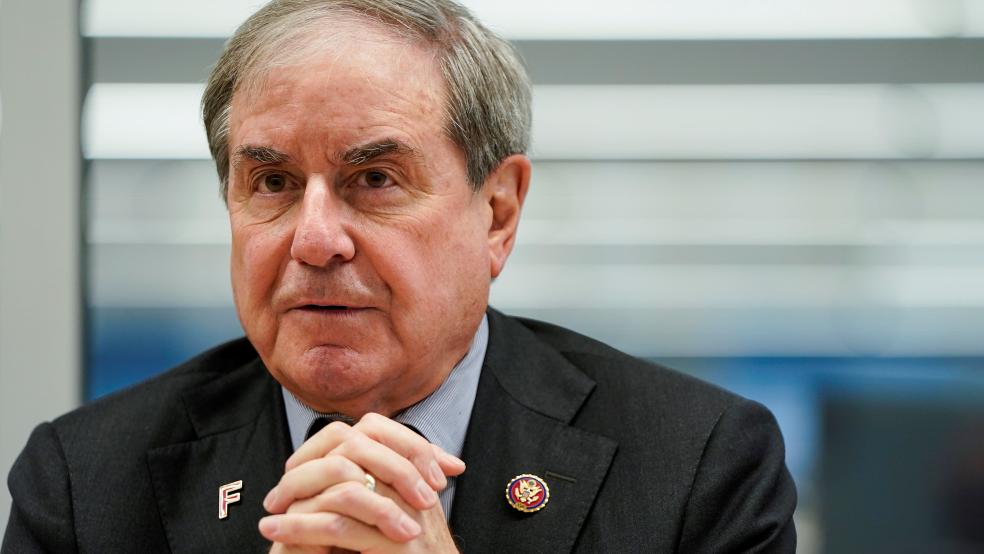House Democrats on Tuesday formally decided to skip releasing a budget resolution for fiscal 2020, instead releasing a proposal to increase spending by $358 billion over the next two years as an alternative to automatic spending cuts set to take effect next year.
The move highlights deep divisions within the Democratic Party, in particular over defense spending and deficit reduction. The bill, advanced by the House Budget Committee on Wednesday evening in a 19-17 vote, also sets the stage for another fight with the White House over spending later this year.
The legislation would:
- Raise the domestic spending limit to $631 billion in fiscal 2020, a 5.7 percent increase, and to $646 billion in fiscal 2021.
- Raise defense spending to $664 billion in 2020, a 2.6 percent increase, and $680 billion in fiscal 2021. Including $69 billion in Overseas Contingency Operations funding that is exempt from spending caps, the overall defense budget for 2020 would be $733 billion, up from $716 billion enacted this year but below the $750 billion total proposed by President Trump. In 2021, total defense spending would come to $749 billion, slightly higher than the $746 billion in Trump’s budget.
Symbolically significant? Budget resolutions are largely symbolic documents that mostly serve to lay out a party’s governing priorities, but the decision to punt on a resolution also carries some symbolism, opening the door to criticism that Democrats, now in control of the House, can’t agree on an agenda and are violating their pledge to govern under regular order.
“We have moderate members who don’t want to vote for revenue increases and on the other side, on the progressive side, there are people who don’t want to vote for a large defense number; they want more spending in nondefense,” Rep. John Yarmuth (D-KY), chair of the House Budget Committee, acknowledged last week. “So finding the numbers is not easy.”
The politics at play: Those intraparty divisions meant that a budget resolution would have been unlikely to pass on the House floor, a potentially embarrassing failure for the new Democratic majority. And a Democratic budget blueprint would have included calls for new revenues (read: tax hikes), giving Republicans ammunition for attacks.
So party leaders opted to skip the whole thing instead.
Democrats had criticized Republicans for failing to pass their own budget resolution last year, when the GOP controlled both the House and Senate. Republicans were quick to return the favor when it became clear Democrats might opt out of passing a budget, citing a line House Speaker Nancy Pelosi often uses: “Show me your budget, show me your values.”
“They have no budget,” House Minority Leader Kevin McCarthy told reporters last week. “Does that mean they have no values?”
A fiscal failure? Fiscal hawks charged that Democrats are failing to carry out a fundamental responsibility of Congress — and that their proposed spending increases would further balloon a deficit already heading toward $1 trillion a year. “A budget resolution typically sets discretionary spending levels for the coming year, but it also includes information about all spending and revenue for at least the next five years, putting decisions about discretionary spending in a larger context,” the Committee for a Responsible Federal Budget said Tuesday. “This would be the first non-election year in which the House has not passed a budget.”
The budget watchdog group estimated that the House Democrats’ legislation would expand deficits by about $2 trillion over the next decade.
Democrats say they’re focused on a more pressing issue: Democrats say their approach steers clear of unnecessary fights over a budget that would carry no legal weight and instead seeks to address the more urgent issue of avoiding steep automatic spending cuts from taking effect next year. “We face austerity level budget caps if Congress fails to act,” Yarmuth said Wednesday. “Given the timing and the obstacles ahead of us, the realistic and responsible path is to act on the immediate need to raise the budget caps – not spend time on symbolic gestures that fail to move this process or our country forward.”
The Budget Control Act of 2011 imposes discretionary spending caps for fiscal 2020 that would represent a 10 percent drop from 2019 levels, or a reduction of $126 billion. Congress has reached four bipartisan deals over the past eight years to lift those previously set spending caps. It would have to do so again to avoid cuts in 2020 and 2021.
“I think the caps bill is exactly what’s needed,” Joel Friedman, the vice president for federal fiscal policy at the left-leaning Center on Budget and Policy Priorities told The New York Times. “The Yarmuth solution is a better use of everyone’s time and energy because of the political landscape we’re facing.”
The White House is reportedly looking to wait on a spending deal until the end of the year in a bid to maximize its leverage in negotiations with Democrats.
This article was updated at 7 p.m. on Wednesday, April 3.





